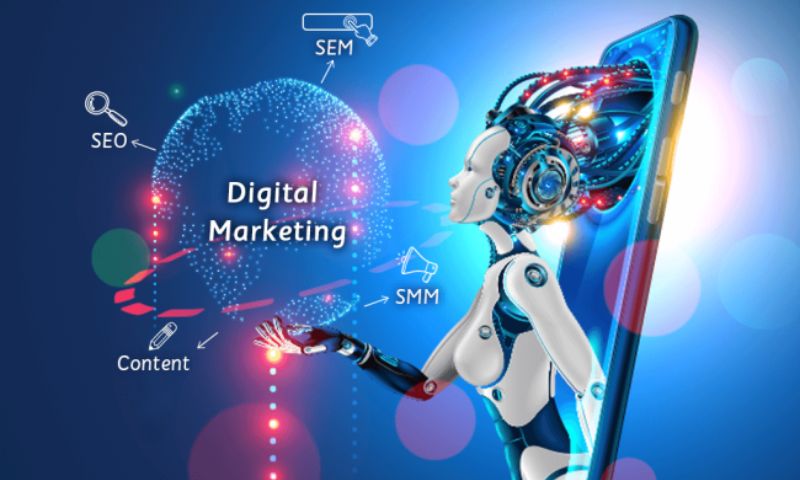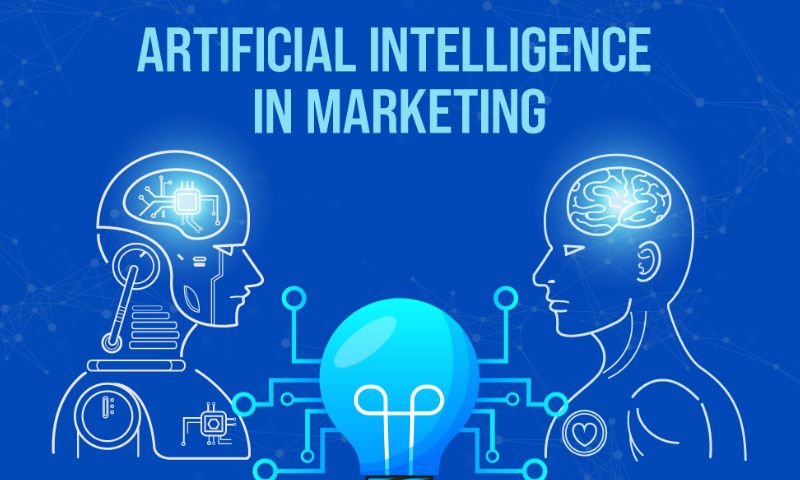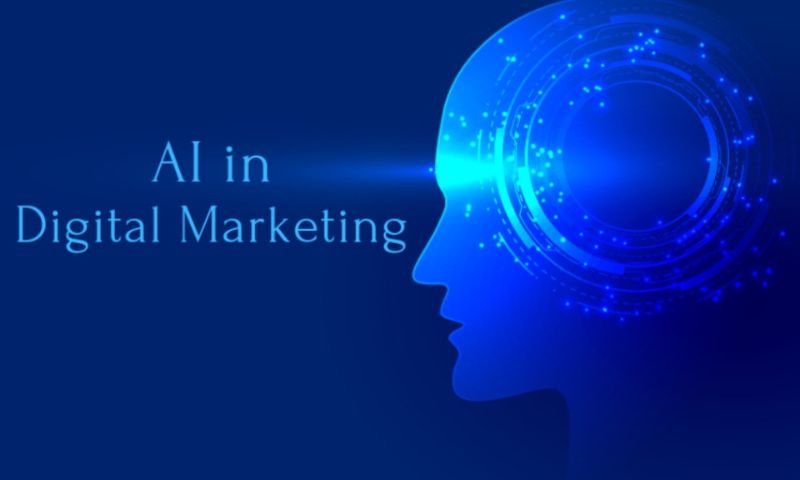Artificial intelligence in marketing is changing the game. Imagine knowing exactly what your customers want before they do. That’s the power AI brings to your marketing table. You get to tap into deeper customer insights, and let smart chatbots handle service like a pro. Now picture your strategies getting sharper with predictive analytics and your emails hitting all the right notes, thanks to AI’s touch. And it doesn’t stop there. Your content and ads now pack a punch, tailored by natural language processing (NLP) and created by dynamic tools that know your audience’s pulse. But how do you keep track of all these wins? AI’s got your back, tracing every success and tweaking your campaigns for that perfect customer pitch. Get ready to dive into a world where your marketing speaks directly to each customer like never before.
Leveraging AI for Enhanced Customer Understanding and Interaction
Gaining Insights with AI-Driven Customer Data Analysis
Have you ever wondered how some ads seem to read your mind? It starts with AI. AI-driven customer insights help companies understand you better. Let’s dive in.
How does AI analysis improve customer insights? By sorting through heaps of data quickly. AI sees patterns in your shopping ways and online clicks. These patterns tell companies what you like and might buy. This is machine learning in action.
Think of Netflix. It uses AI to suggest shows you might like. It learns from what you’ve watched. Next time you log in, there it is – a list just for you. That’s predictive analytics, targeting your taste.
AI personalization shows up in campaigns too. Ever get an email with your name? It’s not just friendly; AI helps companies send these emails. They tailor deals just for you.
This might all sound high-tech, but what’s in it for you? Better experience. When a brand knows you, it can meet your needs better. No more random ads; just stuff you care about.

Enhancing Customer Service through Intelligent Chatbots
Now, let’s talk about chatbots for customer service. You might have talked to one and not even known it! These bots get smarter with AI. They learn from thousands of chats and can answer lots of questions fast.
You need help after buying something online? The chatbot is there 24/7, no waiting. It’s all about making your life easier. AI chatbots are a friend any time you need one.
Chatbots can save you time. But more than that, they can help you feel heard. They keep learning to get even better at helping. No rage-quitting because of a useless chat. AI makes sure of it.
So, expect more helpful newsletters in your inbox. And when you visit a website, a chatbot might pop up. It’s like walking into a shop and the staff knows you.
AI in marketing is not just cool tech; it’s about making your life a little easier. It’s about getting you what you want faster. So next time, when an ad pops up and it’s just what you needed, you know AI’s behind it, working hard to know you better.
Optimizing Marketing Strategies with AI Technologies
Implementing Predictive Analytics for Precise Targeting
Imagine knowing a customer’s next move before they do. Predictive analytics lets us do just that. Using past data, we predict what customers might want next. This is not a guess; it’s a smart move backed by data.
Predictive analytics for targeting looks at trends and habits. It uses math to see into the future. This helps us send the right message at the right time. Think of it like having a crystal ball in your computer. It tells you what ad to show, jazzing up your sales.
So, how do we gather all this smart data? We use artificial intelligence, AI for short. AI chews on big heaps of data fast. It spots patterns we can’t see with our eyes alone. It’s like having a super-smart helper in your corner.
AI-driven customer insights are gold. They help us tailor our ads and deals so they make sense to you, the customer. Machine learning in advertising is like training a puppy. The more it learns, the better it gets at doing tricks – or showing you ads you’ll actually like.
Advancing Email Marketing with AI Optimization Techniques
Now, let’s talk about emails. We all get tons of them, right?
How can we make sure you open the one we send? AI for email marketing optimization is our super tool. It helps us write emails that feel like we’re talking just to you. We’re not reading your mind – AI is doing the smart stuff.
Think of AI as a master chef. It mixes the right words, pictures, and offers to cook up an email you can’t resist. This chef knows you like pizza, but not pineapples on top. Next time you get a pizza deal, it’s made just for you.
Chatbots are another cool AI buddy. They talk to you when you visit a website. They can answer your questions in a snap and guide you, just like a good friend would. Having a chatbot is like always having the smartest kid in class at your side.
In short, AI spices up our marketing recipe. It makes ads and emails feel like they were made with just you in mind. It saves time for us and makes shopping or browsing less of a chore for you.
We have these tools and tricks thanks to AI personalization in campaigns, and they’re changing the game. Predictive analytics for targeting and AI for email marketing optimization don’t just help businesses. They make your life easier too because they bring you closer to what you want and need, minus the hassle.

Amplifying Engagement with AI-Powered Content and Advertising
Utilizing NLP for Tailored Advertising Messages
Let’s chat about how AI makes ads that feel like they’re just for you. AI uses something called natural language processing, or NLP for short. NLP looks at how we use words and helps machines ‘get’ us better. It’s like having a friend who knows exactly what you like, and NLP helps AI be that friend. When you’re online, AI uses NLP to show you ads that match what you’re into. That’s how it feels personal.
Now, how does this work? Think of the last time you shopped online. Maybe you looked at shoes, then later saw an ad for those shoes. That’s NLP and behavioral targeting with AI at play. The AI ‘remembers’ what you like, kind of like a smart helper. It then shows you more stuff like that. It’s smart but also simple – just showing you what it thinks you’ll like.
Driving Conversions with Dynamic AI Content Creation Tools
Let’s talk about how AI keeps things fresh and interesting. AI content creation tools can whip up new text, images, or videos super fast. They change things up depending on what works. Like, if you often click on funny ads, AI will show you more funny stuff. It gets what makes you tick and uses that to grab your attention.
AI-driven customer insights help a lot here. AI looks at lots of data to learn what people like. It can pick up on tiny details you might not even think about. Do you click more when you see red? Or maybe at night? AI sorts through all this to make things that will get you to click and buy.
For a store, this means they can send you cool emails about what you love. That’s AI for email marketing optimization. It’s about sending the right message, to the right person, at the right time. It feels more like getting a note from a buddy than an ad. And who doesn’t like that?
But it’s not about being sneaky. It’s about being smart and helpful. Like, if you’re busy and just need info fast, AI chatbots are there to help. They pop up and answer questions, so you don’t have to wait. This is chatbots for customer service making life easier.
To wrap it up, AI in digital marketing strategy is all about knowing you better. It uses what it learns to make ads and content that click with you. It’s about creating a more fun, interesting online world where you see stuff that’s right for you. And as machines get smarter, your online shopping is just going to get cooler.
Measuring Success and Fine-Tuning Campaigns with Artificial Intelligence
Employing AI Marketing Analytics for Performance Tracking
In today’s fast-paced world, marketing can’t just guess; it needs to know. AI-powered marketing analytics does just that. It tracks how well campaigns do. These tools look deep into the data, like a detective looking for clues. They find out what’s working and, more importantly, what’s not.
Now, say we have a shoe store online. We want to sell more shoes. We use AI analytics to see who buys our shoes. Like magic, it shows us patterns. Maybe people who like running buy them most on Saturdays. We use this info to build better ads. We target these runners right when they plan their weekend run. It’s smart, right?
But that’s not all. These tools learn over time. They get even better at making predictions. This means we save money. We don’t waste cash on ads that don’t work. This keeps our shoe store running strong, without tripping over bad ads.
Refining the Marketing Funnel and Personalization with AI Algorithms
Ever wondered how a shop seems to read your mind? AI personalization is like your shopping buddy that knows exactly what you want. What’s cooler? It helps businesses too.
Let’s say we’re back at that online shoe store. We use AI to watch what you look at. Not in a creepy way, of course. But to understand what shoes catch your eye. Then, when you come back, we’ve found new shoes we think you’ll love. It feels like we made a display just for you.
This is AI refining the marketing funnel. It’s how we turn curious clicks into happy customers. Instead of showing the same shoes to everyone, we show the right ones to the right people. It’s like having a personal shopper for each customer.
AI also helps us speak to you in ways you get. If you’re a runner, we won’t show you high heels; it’ll be the best running shoes we have. It makes sure the chat with our brand feels good. Every word, every picture—it’s all chosen, just for you.
Using AI is like planting the perfect garden. Each ad, each email, it’s like a seed. AI is the gardener that knows where to plant them. It knows how much sun and water they need. With AI, we watch these seeds grow into strong sales trees. Well, you get the point. It’s about giving the campaigns what they need to grow big and strong.
And the best part? While AI keep things running smooth, we get more time to be creative. We can find cool, new ways to make customers smile. AI takes care of the numbers. We take care of the fun.
From tracking data to making shopping feel like magic, AI gives marketing superpowers. It’s about being smart with tech to make marketing everyone loves. Because in the end, that’s what’s going to keep our shoe store, or any store, moving forward.
In this post, we’ve explored how AI can reshape the way we understand and interact with customers. By analyzing customer data, AI helps us gain valuable insights. Smart chatbots improve our customer service too. For marketers, AI is a game changer. It makes our targeting sharper and email strategies more effective. AI also upgrades content and ads, making them grab attention and turn viewers into buyers. Lastly, we use AI to track our success and make our marketing even smarter.
I believe AI is a powerful tool. It’s like a Swiss Army knife for customer relationships and marketing. It’s not just about the tech; it’s about how we use it to connect with people and build better business practices. Always remember, the true test of our strategies is the value they bring to our customers and us. Keep learning, keep refining, and let AI take your marketing to new heights.
Q&A :
How is artificial intelligence utilized in marketing strategies?
Artificial intelligence (AI) has become an integral part of marketing strategies by enabling businesses to analyze large volumes of data for insights, automate tasks such as customer segmentation and personalization, optimize digital advertising through targeting and bidding, and improve customer experiences with chatbots and recommendation systems. Moreover, AI assists in predictive analytics to forecast market trends and consumer behavior.
What are the benefits of incorporating AI into marketing efforts?
Incorporating AI into marketing offers numerous benefits, including enhanced personalization, which leads to improved customer engagement and satisfaction. It allows for more effective and efficient ad targeting, cost savings through automation, and data-driven decision-making. With AI, marketers can also measure campaign performance more accurately and respond to consumer behaviors in real-time, ultimately boosting return on investment (ROI).
Can artificial intelligence predict consumer behavior in marketing?
Yes, artificial intelligence can predict consumer behavior by analyzing data from various sources such as social media, website interactions, and purchase histories. Machine learning algorithms are particularly adept at identifying patterns and predicting future actions of consumers, which can help marketers tailor campaigns to meet the likely interests and needs of their target audience, often before the consumers themselves are aware of them.
What challenges do marketers face when implementing AI in marketing?
Marketers face several challenges when implementing AI in marketing, including data privacy concerns, the need for high-quality and structured data, integration with existing marketing technologies, and a lack of understanding or expertise about AI capabilities and limitations. Additionally, there is the challenge of ensuring ethical use of consumer data and AI in a way that respects consumer rights and societal norms.
How will artificial intelligence in marketing evolve in the future?
Artificial intelligence in marketing is expected to evolve through the advancement of machine learning algorithms, greater integration with other technologies, such as virtual and augmented reality, and the improvement of natural language processing for better consumer interaction. With the expansion of the Internet of Things (IoT), AI will likely play an even more critical role in enabling real-time, context-aware marketing initiatives. Improved AI transparency and explainability will also likely emerge as a key focus to build consumer trust.




